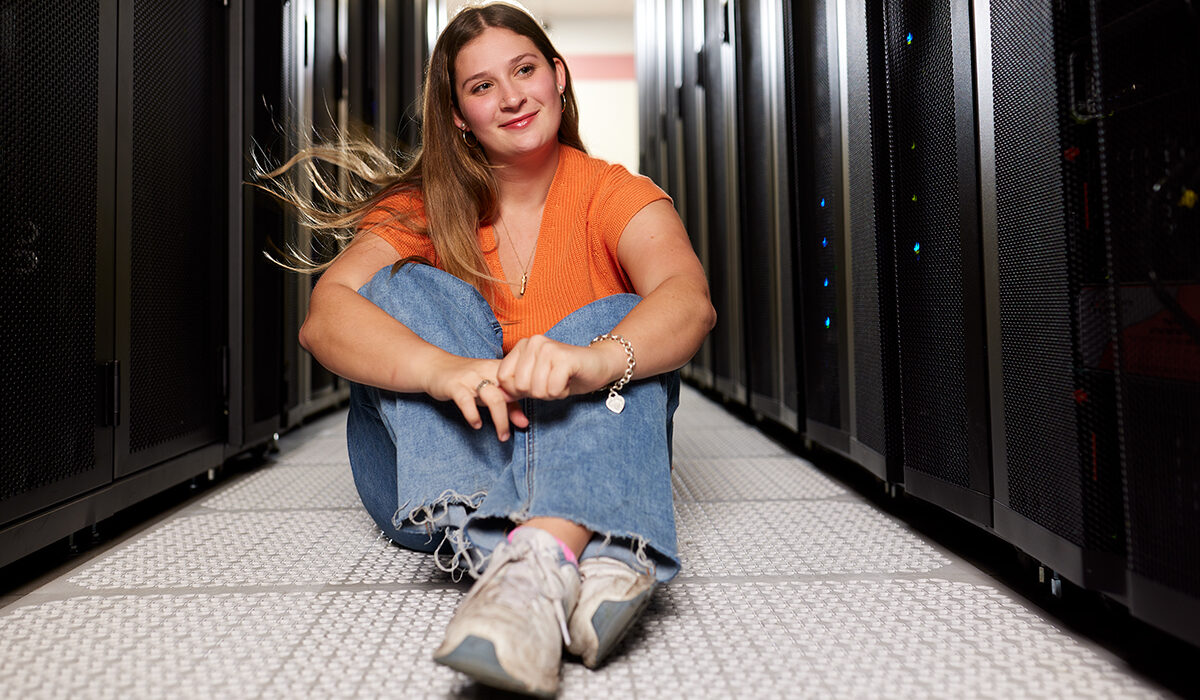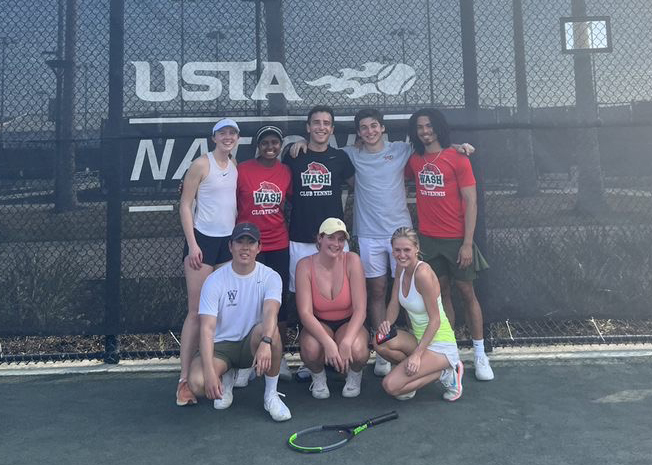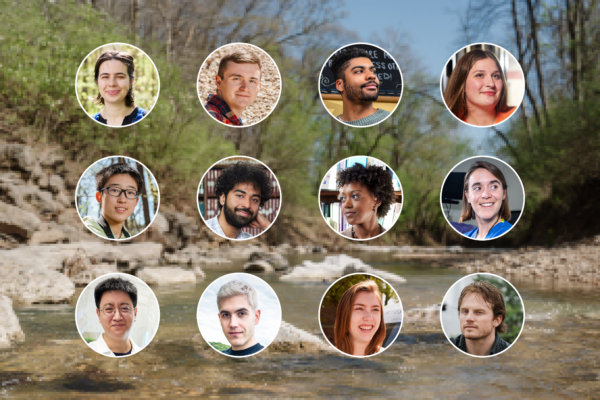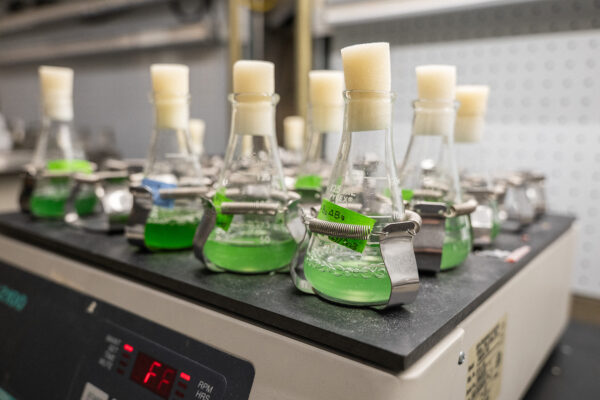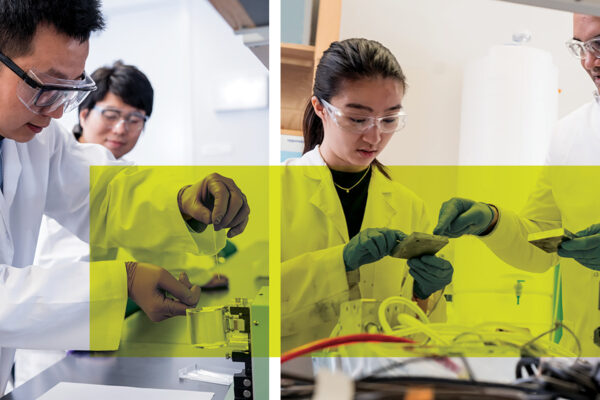Avital Isakov is set to earn a degree in chemistry and anthropology, both in Arts & Sciences, from Washington University in St. Louis this month. A 2023 Astronaut Scholar, Isakov studies green energy solutions in Robert Wexler’s laboratory in the Department of Chemistry and plans to pursue a PhD in computational and theoretical chemistry.
“The most I use my anthro experience now is in trying to be conscious about how people perceive the science that we’re doing,” Isakov said. “If you want to work in an environmental field, especially in energy, there can be a lot of misconceptions.”
Isakov’s friends may joke about her windowless office in Jolley Hall, but she spends plenty of time outside at the Tao Tennis Center, as part of WashU’s co-ed club tennis team.
Here, Isakov describes how she is using supercomputers to create greener fuels.
Your main research is focused on materials development. What does that mean?
Ours is a computational chemistry group, so a lot of the work we do is in building models to understand different materials and their properties or surfaces. Specifically, we’re looking at solar thermochemical hydrogen production, or STCH.
The really cool thing about STCH is that you can produce hydrogen fuel without generating any carbon emissions. STCH uses solar input to heat up metal oxide creating oxygen vacancies in the material. When this is cooled and water vapor passed over the material, hydrogen is produced, and the metal oxide is regenerated. But the materials we are using for this process right now are not optimal. They cost us a little bit too much energy to create oxygen vacancies.
So, we are looking at ways that we can use computer models to predict oxygen vacancy formation. You can scan through thousands of materials. Our group has actually found a candidate material and is studying it specifically.
What did you like about working at the National Renewable Energy Lab last year?
Working at a national lab is different than being at a university. It was a really good experience because it was my first time seeing science outside of straight academia, which was something I appreciated. Doing research for a university is exciting, but it’s not for everyone. I enjoyed getting to see a different side of research.
I also really liked Colorado in the summer. You really can’t be unhappy there, with the beautiful mountains and the hiking and climbing. The weather is perfect.
Using supercomputers to help make carbon-free energy sounds pretty great. But how did you get started?
I talked to Professor Wexler about what his lab group was going to do when they got here, and I just really liked the research. I had never done any computational things before, so there was a lot of on-the-job-learning. The first few months, I had to learn how to code completely from scratch. I had never coded before! That was actually kind of fun.
Now I like the dynamic of going in every day with a new code to write or a new problem to solve. The data analysis can be a bit monotonous. But you get to make pretty pictures. You may be sitting at a computer all day, but you get to do different things. And next year, I think I’m going to get a window.
